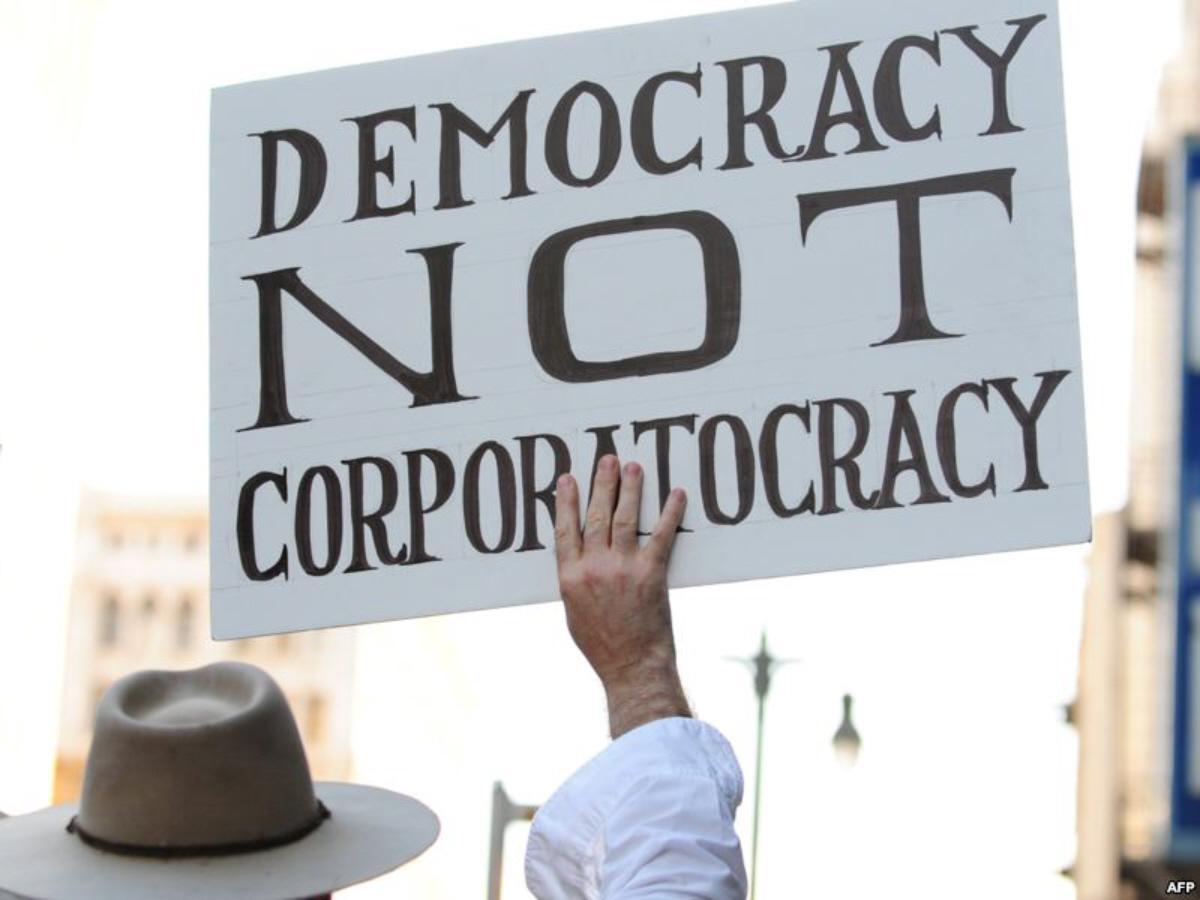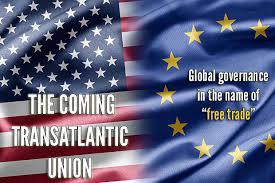Democrat November-December 2013 (Number 138)
Why the secret treaty?
Transatlantic Trade and Investment Partnership

Negotiations around the "Transatlantic Trade and Investment Partnership," or US-EU Free Trade Agreement are nearing conclusion. The purpose is to remove regulatory differences between the US and EU countries and allow a secretive panel of corporate lawyers to overrule the will of parliaments and destroy legal protections. Yet, Cameron, Clegg, Osborne and Cable, the press and Milliband—say nothing. Are they trying to keep us in the dark?
The mechanism through which legal protections are attacked is known as investor-state dispute settlement. It's used in many parts of the world to kill regulations protecting people and the environment. Here are a few examples of the mechanism in action.
The Australian government after massive debates within and outside parliament, decided cigarettes should be sold in plain packets, marked with health warnings. The decision was validated by the Australian Supreme Court. But, using an Australia-Hong Kong trade agreement, the tobacco company Philip Morris asked an offshore tribunal to award it a vast sum in compensation for the loss of 'intellectual property'.
During its financial crisis, and in response to public anger over rocketing charges, Argentina imposed a freeze on people's energy and water bills; but the country was sued by the international utility companies whose vast bills prompted the government to act. For this and other such crimes it has been forced to pay out more than a $billion compensation.
In El Salvador, local communities managed at great cost to persuade the government to refuse permission for a vast gold mine that threatened to contaminate their water supplies. A victory for the people? Well, the Canadian company that sought to dig the mine is now suing El Salvador for $315 million, for the loss of anticipated future profits.

In Canada, the courts revoked two patents owned by the American drugs firm Eli Lilly, on the grounds the company had not produced enough evidence that they had the beneficial effects it claimed. Eli Lilly is now suing the Canadian government for $500 million—and demanding Canada's patent laws be changed.
These corporations use investor-state dispute rules embedded in trade treaties signed by the countries they are suing. The rules are enforced by panels that have none of the safeguards of national courts. Hearings are held in secret. The judges are corporate lawyers, many of whom work for companies of the kind whose cases they hear. Citizens and communities affected by their decisions have no legal standing or right of appeal. Yet the sovereignty of parliaments and rulings of supreme courts can be overthrown.
One of the judges on these tribunals says about his work: "When I wake up at night and think about arbitration, it never ceases to amaze me that sovereign states have agreed to investment arbitration at all … Three private individuals are entrusted with the power to review, without any restriction or appeal procedure, all actions of the government, all decisions of the courts, and all laws and regulations emanating from Parliament."
There are no corresponding rights for citizens and these tribunals can't be used to demand better protection from corporate greed. This is "a privatised justice system for global corporations."
Democracy, as a meaningful proposition, is impossible under these circumstances. This is the system to which we will be subject if the transatlantic treaty goes ahead. The US and EU Commission, both of which have been captured by the corporations they are supposed to regulate, are pressing for investor-state dispute resolution to be included in the agreement.
The Commission justifies this policy by claiming that national courts don't offer corporations enough protection, because they "might be biased or lack independence." But it fails to produce a single concrete example that demonstrates a need for a new, extrajudicial system. It is precisely because courts display some modicum of independence that the corporations want to bypass them. The EU Commission seeks to replace open accountable, sovereign courts with a closed, corrupt system riddled with conflicts of interest and arbitrary powers.
Investor-state rules could be used to smash any attempt to save the health system, including the NHS from complete corporate control, or to regulate the banks. These rules shut down democratic alternatives. Why has there been no attempt by the Con-Dem government or opposition to inform us about this monstrous assault on democracy, let alone consult us? It's time to expose and oppose this monster treaty.
__________
See Canada EU Trade Agreement (CETA)